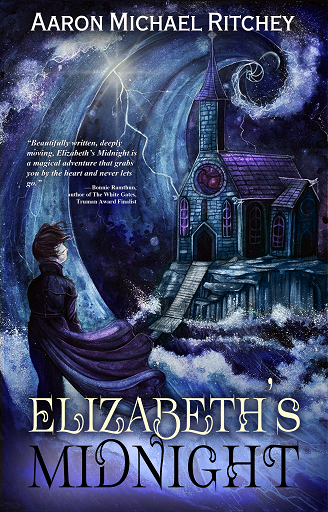Writers NEED people who are willing to provide them with honest and actionable criticism. Without them, our stories and skills will be bound by our own limited perspective and experiences. This is fundamentally why editors are critical to the publishing process. They have the skills, the knowledge, and the experience to dig into a work and uncover the flaws.
However, not everyone is ready to be picked up by a publisher or pay a freelance editor to comb through their work. So, what then? Writing groups.
As it turns out, most writers are willing to share their works with a peer group and trade for feedback. Over the years I’ve had many critique groups. Some were just circles of alpha and beta readers, friends and family I trusted to be honest with me. Others were formalized circles of peers in writing classes. Yet more were collectives of like minds who walked the same path for a while. Though fundamentally different, each taught me something important about my writing.
“But Nathan!” you may say, “I don’t live in a place with writers willing and able to meet with me on a regular basis.” That’s not necessary at all. In fact, my current writing group is rather small, just myself and two others. We also happen to occupy three different time zones. Through the power of the Internet, we are able to meet once a week and spend four to six hours working through our writing with one another.
No matter what format though, I’ve found that all writing groups tend to work best when they follow 10 basic guidelines.
1) Check Your Ego at the Door
One of the most significant steps on any writer’s journey towards becoming a professional is learning to set your ego aside when receiving feedback. It’s hard. After all, we spend months or years working on a single story. It is perfectly natural to become personally invested. HOWEVER, it is your story that is being critiqued, not you. Don’t take it personal.
2) Writing Group is Business Serious
I get it. We all have lives out of group. We’re all busy. However, that’s no excuse for missing a group deadline. If your group is flexible, you’ll be able to work around life commitments, but if you say you are going to get a chapter to the group on Tuesday, it better happen. Not only are you respecting everyone else’s time, but practicing keeping a deadline is important.
3) Giving Criticism Means Acknowledging the Good, the Bad, and the Indifferent
I’ve known plenty of writers/editors/agents who believe that the only way to improve someone’s writing is brutal honesty. I partially agree. Whenever I hand a manuscript over to a beta reader or a writing group, I ask them to tell me what I did poorly (so I can fix it), what I did well (so I don’t break that stuff while fixing the bad), and what didn’t engage them (so I can cut the fat or make them care). Focusing only on the bad will discourage just about anybody, so take the time for a few kind words when they are deserved. Cut to the heart of the issue and be honest, but brutal may not be as necessary as you may think.
4) Silence is Golden, but Duct Tape is Silver
You cannot talk and listen at the same time. Nor can you contemplate a witty retort and listen. Writing groups are neither a thesis defense, nor a debate. They are an opportunity to listen to the opinions of others. If you have trouble holding your tongue, I find that duct tape works wonders. I’m not being facetious. In fact, one of my writing groups held a role in reserve for certain members at each meeting. The exception to this rule is to ask for examples or clarification. In that particular group, we made signs that read “Please elaborate on what you just said,” or “Can you please provide an example of what you mean?” It worked wonders for our productivity.
5) Just Because You Listen Doesn’t Mean You Weren’t Right
In the end it’s your name that’ll be on the cover of the book. Writing groups are made of people, and people sometimes give bad advice. It’s important to consider your group’s feedback, but don’t accept it blindly. However, you do owe your writing group an open mind. Listen. Consider. Decide for yourself what to accept and reject.
6) Set a Structure, but Don’t Fear Change
Though artists tend to be free spirits, business people need order to thrive. An author needs to be both in order to be successful. Your writing time is your own, but writing group is about the business of making your books better. During the first meetings, establish rules and enforce them.
However, the whole point of a writing group is to get better. By necessity, your changing skill will alter what you need from the group. Take the time every so often to evaluate what y’all are doing as a group and make adjustments where necessary. The group is there to see to your collective needs. If it isn’t doing that, it needs to be changed.
7) Meet in Person Whenever You Can
I’ve tried forum based writing groups and they never worked. My theory is that there is more accountability involved in seeing someone’s face and talking to them. Furthermore, there’s a great deal of communication that passes between the words. That’s why my current writing group uses Google Talk or Skype for our meetings. It’s worked out really well for us so far!
8) Find a Group of Peers…
For a writing group to be effective, everyone must get something out of the time. If one member is significantly behind or ahead of the rest of the group, frustration and wasted hours will ensue. Better to find a group of people who have similar levels of skill, but much to teach each other. As an example, a non-fiction writer may not have a place in a SF&F writing group.
9) … But Avoid Group Think
Often, a group that is together a long time will all begin to write the same way. DANGER! The point of the group is to make each individual better, not to form the literary Borg.
This is often best avoided by having diversity in your group. Make sure you have both men and women in your group, as well as individuals from multiple racial or socio-economic classes. Do you aim at an audience of one or many? Why then, would you only have one kind of reader?
Secondly, find group members who write in similar, but different genres. An entirely sword and sorcery fantasy group won’t be as productive a group with one science fantasy writer, one classic fantasy writer and one writer with science fiction, literary fiction, and poetry leanings.
Based on your needs, be willing to mix the genre balance even more. Each genre has its own skills and lessons to teach. If you find that the group’s romance subplots are lacking, find a romance writer willing to join the group. Ultimately, I go to group to absorb the strengths of my group mates as well as share my own experience and skills.
10) Finally, Know When to Say Goodbye
There are two sides to this tip. On the one hand, sometimes a writing group member needs to be asked to leave for the good of the group. I had one group where one member was harsh to the point where others were afraid to submit to group lest they have their confidence and story torn apart. It would have been best for this individual to leave the group, but instead the group disbanded.
On the other hand, there will come a time where it might be best for you to leave a group. You know the time has come when the group stops being useful or is outright detrimental to your writing, when the group’s assignments feel like busy work, or the group has descended into unproductive bickering. Be polite in excusing yourself, but find another group. There’s nothing more to learn there.
About the Author:
Though Nathan Barra is an engineer by profession, training and temperament, he is a storyteller by nature and at heart. Fascinated with the byplay of magic and technology, Nathan is drawn to science fantasy in both his reading and writing. He has been known, however, to wander off into other genres for “funzies.” Visit him at his webpage or Facebook Author Page.


 Evan Braun is an author and editor who has been writing books for more than ten years. He is the author of The Watchers Chronicle, whose third volume, The Law of Radiance, has just been released. He specializes in both hard and soft science fiction and lives in the vicinity of Winnipeg, Manitoba.
Evan Braun is an author and editor who has been writing books for more than ten years. He is the author of The Watchers Chronicle, whose third volume, The Law of Radiance, has just been released. He specializes in both hard and soft science fiction and lives in the vicinity of Winnipeg, Manitoba.
